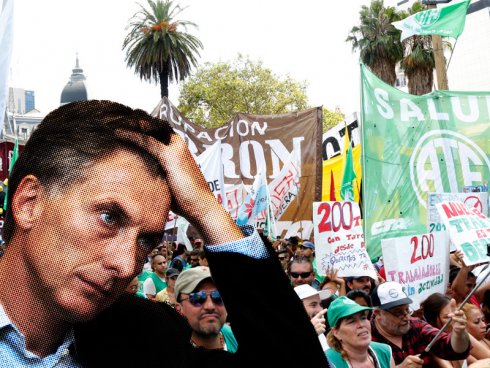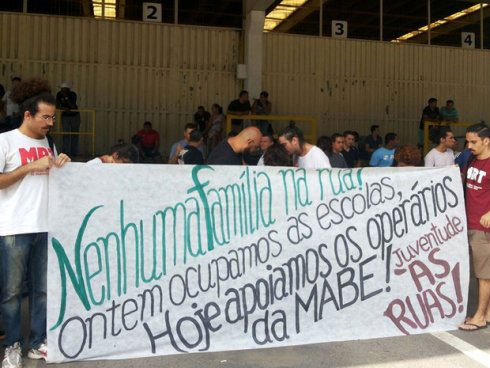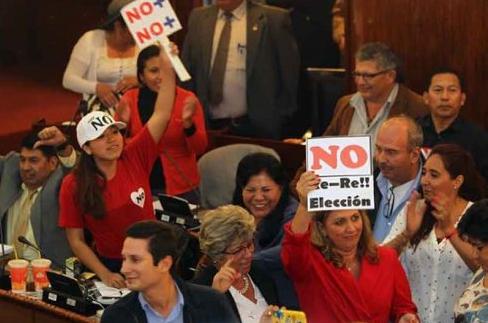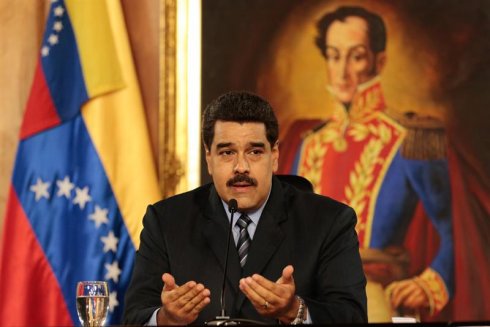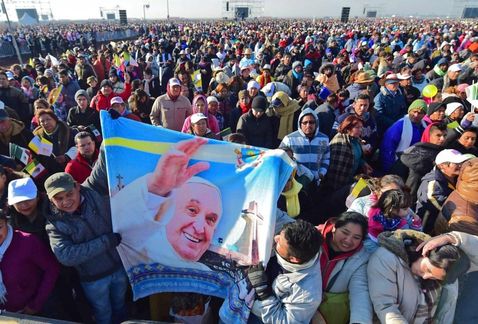Cuba: After the release of the dissidents
The Castro government is preparing new austerity measures against the masses
24/07/2010
Several news stories, announcements and rumors about Cuban politics confirm what we maintained in La Verdad Obrera 382, that the release of the Cuban political prisoners, negotiated with the Catholic Church and the Spanish government, shows a concession to European imperialism and a new turn in Raúl Castro’s policy towards capitalist restoration.
Ricardo Alarcón, President of the Cuban parliament, announced on July 20 that all the political prisoners not accused of violent crimes, would be released. According to speculation, after the release of the 52 prisoners, after the agreement with the Catholic Church in Cuba and Moratinos, the Spanish Foreign Affairs Minister, 115 prisoners would remain in Castro’s prisons. For their part, the first seven prisoners released, having arrived in Spain, began actively politically opposing the agreement reached in Havana and signed a declaration that the European Union (EU) should keep its sanctions against Cuba, in this way criticizing the position of the Spanish government, that, as part of the agreement with the Cuban government, promised to put pressure on the EU to lift the sanctions against Cuba. Meanwhile, in Havana, the Ladies in White met with US officials, who offered the released prisoners asylum in Miami. The bureaucracy is hoping that the decision to free the prisoners will allow it to negotiate with the White House a relaxation of the conditions of the blockade. The new political situation after the prisoners’ release has strengthened the role of the Catholic Church as a negotiator between the government, the right-wing opposition and imperialism.
Austerity and restoration
Alarcón’s announcement of the prisoners’ release is accompanied by the beginning of a process of austerity. According to official sources, quoted by the Spanish paper El País, "there will be an expansion of work by the self-employed and, above all, some services will be provided by cooperatives. Subsidies and social expenditures will continue to be cut, with the aim of making the system sustainable, and personnel staffs will gradually be reduced, something that, obviously, will have a social impact. Advances will also be made in eliminating the double currency and in renegotiating the debt with the objective of alleviating financial tensions." The same daily paper states that "In the meeting between the Cuban President, Moratinos and Cardinal Jaime Ortega, on July 7, in which the release of the prisoners of conscience was announced, Castro had been extremely clear on this matter. ’He said that he needed to settle the matter of he prisoners, in order to be able calmly to make the economic changes that are required, and he showed his willingness and concern to confront the problem of 1,300,000 workers (about 30% of the active population) who are superfluous at their jobs.’" (El País, July 18).
In this way, the bureaucracy is showing its willingness to move forward with an austerity program, in order to unload the crisis onto the backs of the masses of workers and campesinos, for whom the social effects are still unpredictable, but, according to all analysts, are causing alarm and worry throughout Cuban society. We have already said that a key point of the agreement between the Castro government and Chancellor Moratinos is the lifting of the European Joint Position, that supports the EU sanctions against Cuba, since the Cuban government crucially needs to gain access to European credit for financing the state, plagued by a trade deficit of 10 billion dollars and by defaulting on the loans that China and other governments made to Cuba.
The bureaucracy and corruption
The scandal of corruption at the heights of the state apparatus is accompanying the announcements of the prisoners’ release and economic austerity. Cuban authorities issued a summons for the Chilean businessman and Fidel Castro’s personal friend, Max Marambio (former militant of the MIR, bodyguard of the late Salvador Allende and manager of Marcos Enriquez Ominami’s presidential campaign), accused of bribery, fraud, and embezzlement against the Cuban government through his food company Río Zasa. The news took on elements of scandal, because of the strange death of the firm’s general manager, the Chilean Roberto Baudrand. Recently the ministers Jorge Luis Sierra and Luis Manuel Ávila had already been spattered by corruption at the heights of the government.
This situation confirms the charges that we repeated in La Verdad Obrera 382, by Esteban Morales, a researcher at the Havana Centro de Estudios Hemisféricos y sobre Estados Unidos, who was expelled from the PCC [Cuban Communist Party] for stating that "corruption [is] the real counter-revolution" (Esteban Morales’ blog, July 11), and for correctly indicating that government corruption is the way for the leading circles of the state and the PCC to position themselves for capitalist restoration.
The bureaucracy and power
Fidel Castro’s public reappearance, although he has not made any statements on the matter, expresses the historic leader’s support for his brother and the unity existing in the gerontocratic old guard of the Castro bureaucracy, with ever-increasing support in the Revolutionary Armed Forces, to exercise power with an iron fist and keep the new phase of the Cuban political process under his control. Fidel’s active reappearance is an attempt to limit the muffled struggle among the different factions of the ruling bureaucracy and to discipline them at a moment when, prodded by the world crisis and financial difficulty, the regime’s challenge is to unload the crisis onto the movement of the masses, in order to take new steps on the road of pro-capitalist reforms.
In this sense, the release of the prisoners from the anti-Castro opposition, far from signifying an expansion of the political freedoms and rights of the masses of Cuba’s workers and campesinos, so that they could organize themselves in defense of their gains (as we Trotskyists have set out), expresses an attempt by the bureaucratic regime, hounded by the specter of financial bankruptcy, to strengthen a policy of negotiation by making concessions to imperialism and the restorationist forces, including exiled groups that approvingly welcomed the release of the prisoners, that are using bourgeois democratic slogans to destroy the deformed and bureaucratized workers’ state that arose from the 1959 Revolution.
Political revolution
The masses of workers and campesinos in Cuba find themselves facing the crossroads of having to defend the conquests of the 1959 Revolution, by simultaneously confronting the criminal blockade by the US and the policy of austerity that the government of the Castro brothers and the gerontocracy is preparing. The struggle against privileges, corruption, and the newly rich, raises the need to win the broadest political and organizational freedoms, for the masses of workers and campesinos and for all the parties, independent unions and popular organizations that defend the gains of the Revolution. It is necessary to demand the revision of all the pro-capitalist economic reforms made until now, on the way to imposing democratic planning of the economy. This is a program for defeating the austerity that is being prepared from the highest circles of the regime, and it is on the agenda, in order to defeat the bureaucratic and restorationist forces interested in breaking the movement of the masses, to accelerate the return to capitalism.
The rise of critical positions within the PCC apparatus, like those that Esteban Morales and other intellectuals are expressing, show that bureaucratic monolithism is being questioned and that it must not be ruled out that displaced groups of the party apparatus will appeal to the needs of the masses to push for reforms. The rise of a workers’, socialist and revolutionary opposition to the bureaucracy demands a position independent of both the bourgeois democratic banners of imperialism and the PCC’s self-reform program or any variant of perestroika or glasnost in the Cuban style. It is necessary to build a workers’, Marxist and revolutionary party to lead a political revolution to save the workers’ and campesinos’ conquests of 1959.

